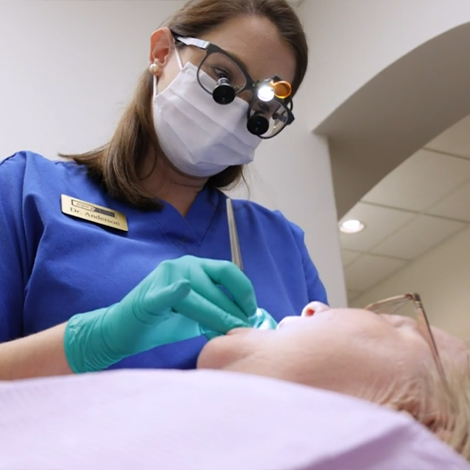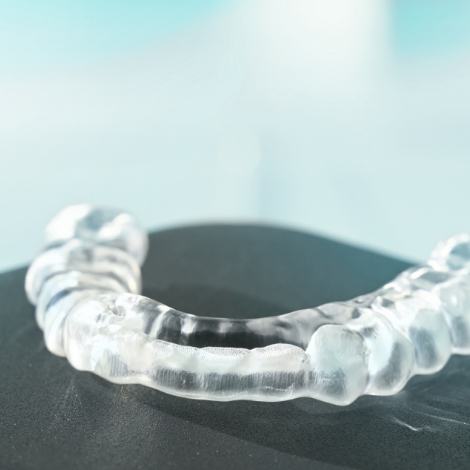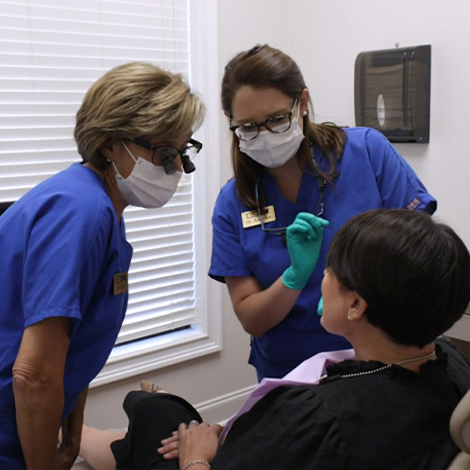TMJ Treatment – Fort Mill
Don’t Force Yourself to Endure Jaw Pain
Many people try to ignore chronic jaw pain, which can be a mistake if it’s being caused by a problem with the temporomandibular joint, or TMJ. An unresolved TMJ disorder is likely to get worse over time, causing more severe pain and possibly making it harder to move the jaw around. If you suspect you have a TMJ disorder, call Jasper Dentistry right away so that we can diagnose the problem and start planning TMJ treatment in Fort Mill to stop your discomfort.

Why Choose Jasper Dentistry for TMJ Treatment?
- Fully Customized Occlusal Splints & Mouthguards
- Decades of Helping Fort Mill Families Deal with TMJ Issues
- In-Office Dental Savings Plan Available
What Is TMJ Disorder?
The TMJ is a small set of hinges located in front of your ears. This joint is what allows your lower jaw to move up and down when you speak, laugh, and talk. The TMJ is one of the most complex joints in the body, so it can be disturbed by a misaligned bite, teeth grinding, and other factors. When the TMJ is disturbed, this is referred to as TMJ disorder, or TMD.
Symptoms of TMJ Disorder

There are a various of symptoms that those with TMJ disorder experience. Here are some of the most prominent ones.
- Headaches: One of the most underdiagnosed causes of frequent headaches is TMD. The jaw muscles become tense, strained, and overworked, so it is easy for this to affect nearby muscles in the head.
- Ear Pain: Since the TMJ is located next to the ears, having a dysfunctional joint can easily result in ear pain. It can also cause ringing in the ears, known as tinnitus.
- Face/Jaw Pain: Jaw stiffness and pain are the most common symptoms of TMD. It can be difficult to chew comfortably, and lockjaw is very common.
- Bruxism: Teeth clenching and grinding can be caused by daily stress, a misaligned bite, and TMD. It usually happens during sleep and can overwork the jaw muscles, leading to additional pain.
Types of TMJ Treatment

Depending on the cause of your TMJ disorder and the severity of your case, there are various treatment options available. Here are the ones that we offer.
Occlusal Splint

An occlusal splint may look like a regular mouthguard, but while it does protect the teeth from grinding against each other, it’s also designed to adjust the position of the jaw. Specifically, it’s made to guide the jaw slightly forward so that it doesn’t put as much pressure on the TMJ when it’s at rest. You’ll generally wear your occlusal splint at night, although you may need to wear it during the day in some cases; we’ll give you more specific instructions once you receive your appliance.
Equilibration/Occlusal Adjustment

Do your upper and lower teeth come together evenly all around your mouth? If the answer is no, then you might need occlusal adjustments. We can remove small amounts of enamel from certain areas of your teeth so that they fit together properly. As a result, your jaw will no longer be exposed to an excessive amount of force whenever you bite or chew. In some cases, we might also build up your teeth with fully custom-made dental crowns.
